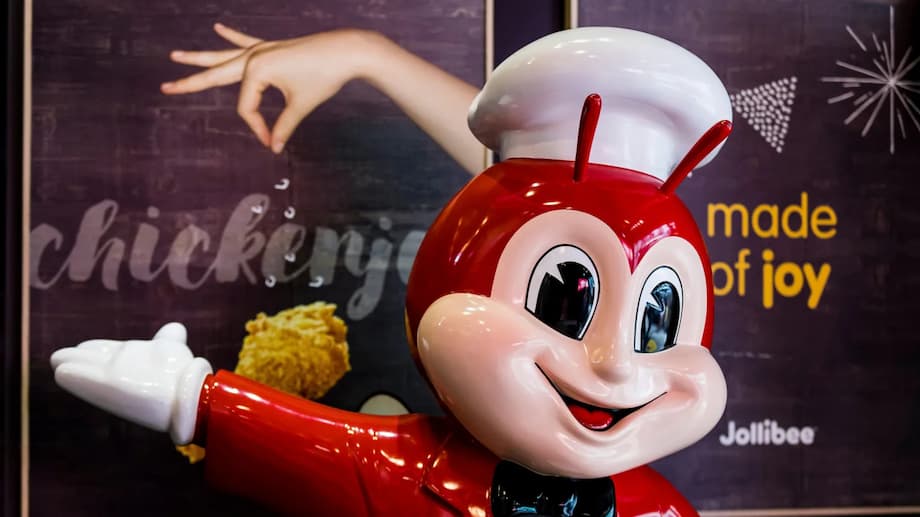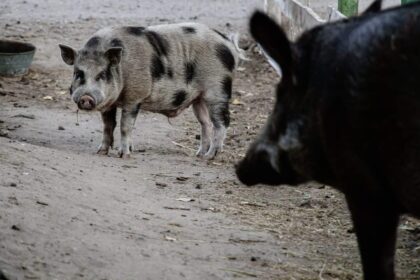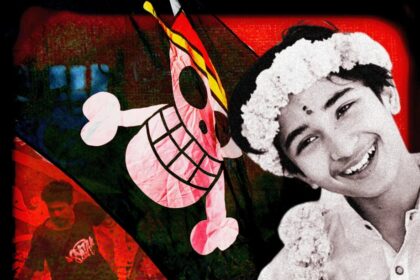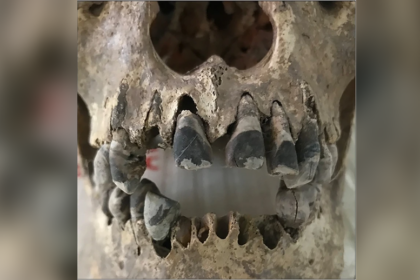Jollibee Raffle Scandal: How Fraudsters and AI-Generated Names Sparked a National Debate
Jollibee, the Philippines’ most iconic fast-food chain, recently found itself at the center of a social media storm and government investigation after its Burger Blowout raffle was rocked by allegations of fraud and the use of AI-generated names. The controversy, which unfolded in August 2025, has raised questions about the security of online promotions, the role of artificial intelligence in digital fraud, and the importance of transparency in consumer contests.
- Jollibee Raffle Scandal: How Fraudsters and AI-Generated Names Sparked a National Debate
- How the Jollibee Burger Blowout Raffle Unraveled
- AI-Generated Names: A New Challenge in Digital Promotions?
- Public Reaction: Humor, Outrage, and Calls for Accountability
- DTI’s Role: Ensuring Fairness and Transparency
- Jollibee’s Response: Apologies, Corrective Actions, and a Special Raffle
- Why This Matters: The Broader Implications for Digital Promotions
- Jollibee’s Place in Filipino Culture: More Than Just Fast Food
- In Summary
What began as a routine promotional campaign quickly escalated into a national talking point, with netizens, regulators, and the company itself scrambling to address the fallout. Here’s how the story unfolded, what it means for Jollibee and its loyal customers, and why it matters for the future of digital promotions in the Philippines.
How the Jollibee Burger Blowout Raffle Unraveled
Jollibee’s Burger Blowout promo was designed to reward customers with food items and concert tickets through weekly online raffles. But in the third week of the campaign, the announcement of major prize winners on Jollibee’s official Facebook page triggered widespread disbelief and suspicion. The names of the winners—such as Hobby Dynamics, Noble Beer, Alfreda Corkery, Oral Murphy, and Bonita Gulgowski—stood out as highly unusual in the Filipino context, where names typically reflect a blend of English and Spanish heritage.
Social media users were quick to point out the oddity. Comments ranged from jokes about lazy AI name generators to pointed accusations of fraud. One Facebook user exclaimed,
LIKE SERIOUSLLLLLY?!?! Your AI must be too lazy to come up with these kinds of names.
Others drew parallels to recent government controversies involving fictitious beneficiaries, further fueling public skepticism.
The viral backlash prompted Jollibee to delete the original winners’ post and issue a statement acknowledging the concerns. The company said it was reviewing the matter in coordination with the Department of Trade and Industry (DTI), the government agency responsible for overseeing trade promotions and consumer protection.
Fraudulent Third Parties and Exploited Systems
As the investigation unfolded, Jollibee revealed that “fraudulent third parties” had exploited its raffle system by submitting multiple unauthorized entries, bypassing existing safeguards. This manipulation allowed ineligible participants to win major prizes, undermining the integrity of the promotion. The company emphasized that it had cooperated fully with the DTI’s investigation and had taken immediate corrective measures.
Jollibee’s official statement read:
We want to assure everyone that we have fully addressed the issues raised and strictly complied with the investigation initiated by the Department of Trade and Industry.
With DTI’s approval, Jollibee disqualified the invalid winners from the Week 3 draw, suspended subsequent draws, and announced plans for a re-draw to ensure fairness. The company also promised to reinforce its verification and validation processes to prevent similar incidents in the future.
AI-Generated Names: A New Challenge in Digital Promotions?
One of the most striking aspects of the controversy was the widespread belief that the suspicious names were generated by artificial intelligence. In recent years, AI-powered name generators have become more sophisticated and accessible, making it easier for fraudsters to create plausible-sounding but fictitious identities. This technology, while useful for legitimate purposes such as creative writing or anonymizing data, can also be weaponized for online scams and promotional fraud.
The Jollibee case highlights how AI-generated names can slip through automated systems designed to detect duplicate or suspicious entries. While Jollibee had safeguards in place, the incident exposed vulnerabilities that can be exploited by determined actors using advanced digital tools.
According to cybersecurity experts, the use of AI in fraud schemes is a growing concern worldwide. Automated bots can flood online forms with fake entries, and AI-generated names can evade simple filters. This places the onus on companies to implement more robust verification methods, such as cross-referencing entries with government-issued IDs or using multi-factor authentication.
Public Reaction: Humor, Outrage, and Calls for Accountability
The Filipino public’s reaction to the raffle controversy was a mix of humor, outrage, and calls for greater accountability. Social media platforms were flooded with memes and jokes about the bizarre names, with some users speculating that the winners were “confidential fans”—a tongue-in-cheek reference to another recent scandal involving questionable government payouts.
Others questioned how such names could have passed through Jollibee’s internal verification processes, suggesting either a lack of oversight or a deliberate attempt to deceive. Some netizens argued that if the public had not noticed the odd names, the issue might have gone unaddressed.
Despite Jollibee’s swift response and cooperation with authorities, skepticism lingered. Many customers demanded more transparency in the selection and verification of raffle winners, while others called for stricter government regulation of online promotions.
DTI’s Role: Ensuring Fairness and Transparency
The Department of Trade and Industry played a central role in investigating the controversy and restoring public trust. Upon receiving complaints, the DTI coordinated with Jollibee to review the list of winners, the mechanics of the raffle, and the safeguards in place. The agency requested relevant documents and temporarily suspended all further raffle promotions pending the outcome of the investigation.
In a statement, the DTI assured consumers that it remains committed to ensuring fairness and transparency in all promotional activities. The agency pledged to continue monitoring trade promotions and to oversee the resumption of the Jollibee Burger Blowout Promo, emphasizing the importance of protecting consumers and maintaining a level playing field for businesses.
DTI’s intervention was widely welcomed by the public, who saw it as a necessary check on corporate accountability. The agency’s actions also set a precedent for how similar cases might be handled in the future, particularly as digital promotions become more prevalent and sophisticated.
Jollibee’s Response: Apologies, Corrective Actions, and a Special Raffle
In the wake of the scandal, Jollibee moved quickly to contain the damage and reassure its customer base. The company apologized to affected customers, disqualified the invalid winners, and announced a special raffle as a gesture of appreciation to the community. Schedules for the Week 3 re-draw, as well as the remaining draws for Weeks 4 to 6, were promised to be announced soon.
Jollibee also reinforced its verification and validation processes, working closely with the DTI to strengthen the integrity of its promotional campaigns. The company reminded the public not to purchase raffle tickets from unauthorized sources and reiterated its commitment to fair and transparent promotional activities.
These actions were seen as necessary steps to restore consumer confidence, but the incident also served as a wake-up call for the company and the broader industry about the risks of digital fraud and the need for continuous improvement in security measures.
Why This Matters: The Broader Implications for Digital Promotions
The Jollibee raffle controversy is more than just a corporate PR crisis—it is a cautionary tale about the challenges of running large-scale digital promotions in an era of sophisticated fraud and AI-powered deception. As more companies move their marketing campaigns online, the risks of manipulation and abuse increase, especially in markets with high digital engagement like the Philippines.
For consumers, the incident underscores the importance of vigilance and skepticism when participating in online contests. For businesses, it highlights the need for robust security protocols, transparent processes, and proactive engagement with regulators and the public.
Experts suggest that companies should consider implementing the following measures to safeguard their promotions:
- Stronger identity verification for raffle entries, such as requiring government-issued IDs or mobile number validation
- Advanced fraud detection systems that can identify patterns of suspicious activity, including the use of AI-generated names
- Regular audits of promotional campaigns by independent third parties
- Clear communication with consumers about the rules, safeguards, and outcomes of promotions
Ultimately, the Jollibee case serves as a reminder that trust is the most valuable currency in the digital age. Companies that fail to protect the integrity of their promotions risk not only regulatory penalties but also lasting damage to their brand reputation.
Jollibee’s Place in Filipino Culture: More Than Just Fast Food
Part of what made the controversy so resonant is Jollibee’s unique place in Filipino society. Founded in the 1970s by Tony Tan Caktiong, the son of poor immigrants from southern China, Jollibee has grown from a small ice cream shop to a global fast-food powerhouse with over 1,600 stores in 17 countries. Its mascot—a smiling bee in a red jacket—symbolizes the hardworking and cheerful spirit of the Filipino people.
Jollibee’s menu, featuring fried chicken, burgers, and sweet-style spaghetti, has become a staple at family gatherings and celebrations. The brand is deeply woven into the national identity, and its successes and failures are often seen as reflections of broader social trends.
Previous incidents, such as the 2014 #ChickenSad shortage, have shown how passionately Filipinos respond to issues involving Jollibee. The recent raffle scandal is no exception, with many viewing it not just as a corporate misstep but as a matter of national pride and trust.
In Summary
- Jollibee’s Burger Blowout raffle was rocked by allegations of fraud and AI-generated names, sparking public outrage and a government investigation.
- Fraudulent third parties exploited the raffle system, bypassing safeguards and allowing ineligible entries to win major prizes.
- Jollibee disqualified the invalid winners, suspended subsequent draws, and announced plans for a re-draw and a special raffle.
- The Department of Trade and Industry played a key role in investigating the incident and ensuring fairness and transparency.
- The controversy highlights the growing risks of digital fraud in online promotions and the need for stronger security measures.
- Jollibee’s swift response and corrective actions aim to restore consumer trust, but the incident serves as a cautionary tale for the entire industry.
- As digital promotions become more common, companies must prioritize transparency, robust verification, and proactive engagement with regulators and the public.












